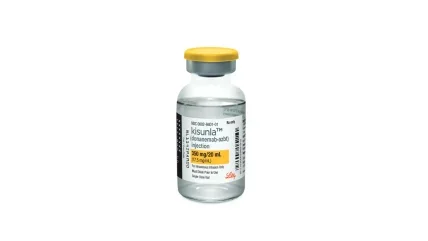
Eli Lilly and Company (Lilly) has received the US Food and Drug Administration (FDA) approval for Kisunla (donanemab-azbt) to treat adults with early symptomatic Alzheimer’s disease (AD).
Kisunla is an amyloid-targeting treatment intended for people with mild cognitive impairment (MCI), along with people with mild dementia stage of AD, with confirmed amyloid pathology.
The drug, administered as a once-monthly 350mg/20mL IV injection, can help the body remove the excessive buildup of amyloid plaques and slow the decline.
It is the first and only amyloid plaque-targeting therapy to support stopping therapy when amyloid plaques are removed, with lower treatment costs and fewer infusions, said Lilly.
Eli Lilly and Co. president and Lilly Neuroscience executive vice president Anne White said: “Kisunla demonstrated very meaningful results for people with early symptomatic Alzheimer’s disease, who urgently need effective treatment options.
“We know these medicines have the greatest potential benefit when people are treated earlier in their disease, and we are working hard in partnership with others to improve detection and diagnosis.
“Our deepest thanks to the patients and their loved ones for participating in our clinical programs and to Lilly scientists and collaborators persevering over decades of research.”
In the Phase 3 TRAILBLAZER-ALZ 2 study of Kisunla, people who were the least advanced in the disease experienced the strongest results.
The study evaluated participants over 18 months, in two groupings, one with less advanced in their disease and the other with overall population, including those with high tau levels.
In the Phase 3 study, treatment with Kisunla significantly slowed clinical decline in both groups.
People with less advanced disease showed a significant decline with Kisunla (35%) compared with placebo, on the integrated Alzheimer’s Disease Rating Scale (iADRS).
The overall population also showed a statistically significant response to treatment (22%).
In the two groups, participants treated with Kisunla had up to a 39% lower risk of progressing to the next clinical stage of disease than those taking placebo.
Kisunla can cause amyloid-related imaging abnormalities (ARIA), which can be serious, leading to life-threatening events and can be detected via magnetic resonance imaging (MRI) scans.
The drug can also cause certain types of allergic reactions, some of which may be serious and life-threatening, along with headache and another commonly reported side effect, said Lilly.






